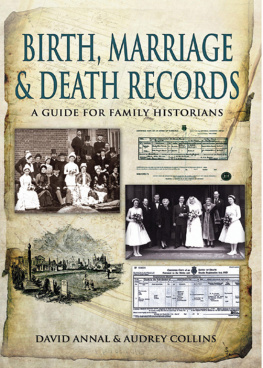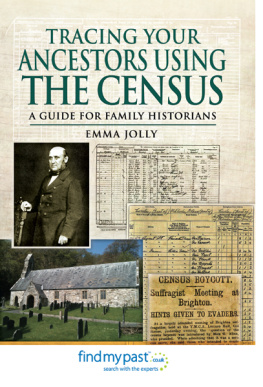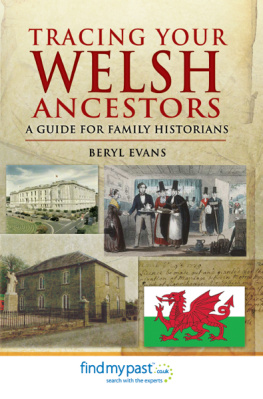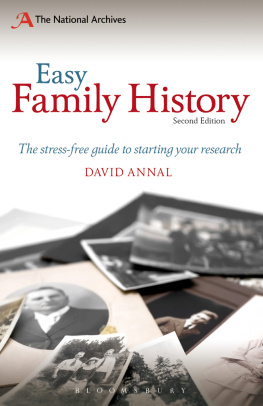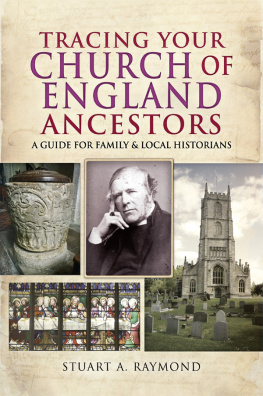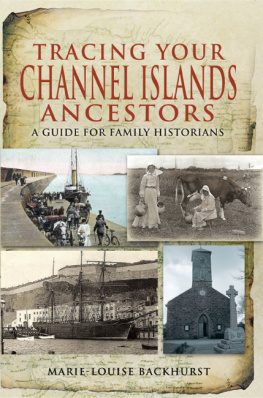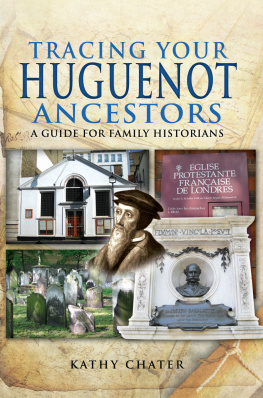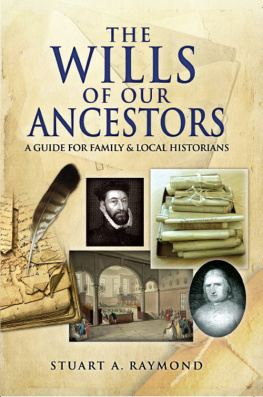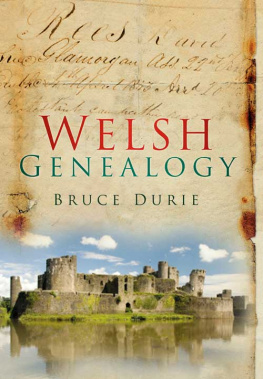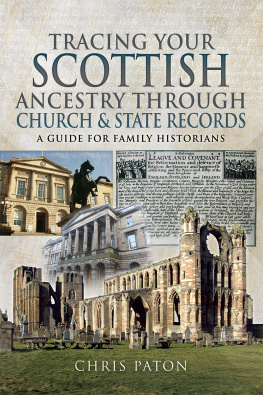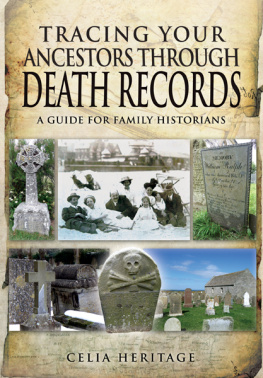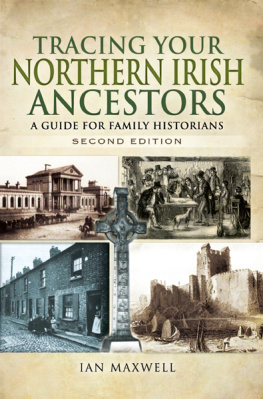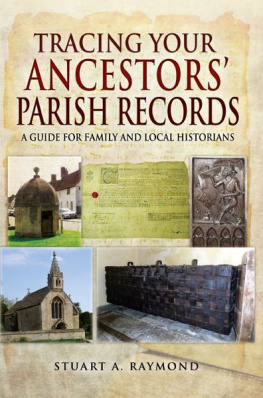BIRTH, MARRIAGE
AND DEATH
RECORDS
FAMILY HISTORY FROM PEN & SWORD
Tracing Your Channel Islands Ancestors
Marie-Louise Backhurst
Tracing Your Yorkshire Ancestors
Rachel Bellerby
The Great War Handbook
Geoff Bridger
Tracing Your Royal Marine Ancestors
Richard Brooks and Matthew Little
Your Rural Ancestors
Jonathan Brown
Tracing Your Pauper Ancestors
Robert Burlison
Tracing Your East End Ancestors
Jane Cox
Tracing Your Huguenot Ancestors
Kathy Chater
Tracing Your Labour Movement Ancestors
Mark Crail
Tracing Your Ancestors
Simon Fowler
Tracing Your Army Ancestors
Simon Fowler
A Guide to Military History on the Internet
Simon Fowler
Tracing Your Northern Ancestors
Keith Gregson
Your Irish Ancestors
Ian Maxwell
Tracing Your Northern Irish Ancestors
Ian Maxwell
Tracing Your Scottish Ancestors
Ian Maxwell
Tracing Your London Ancestors
Jonathan Oates
Tracing Family History on the Internet
Christopher Patton
Great War Lives
Paul Reed
Tracing Your Tank Ancestors
Janice Tait and David Fletcher
Tracing Your Air Force Ancestors
Phil Tomaselli
Tracing Your Second World War Ancestors
Phil Tomaselli
Tracing Your Secret Service Ancestors
Phil Tomaselli
Tracing Your Criminal Ancestors
Stephen Wade
Tracing Your Legal Ancestors
Stephen Wade
Tracing Your Police Ancestors
Stephen Wade
Tracing Your Jewish Ancestors
Rosemary Wenzerul
Fishing and Fishermen
Martin Wilcox
Tracing Your Canal Ancestors
Sue Wilkes

First published in Great Britain in 2012 by
PEN & SWORD FAMILY HISTORY
An imprint of
Pen & Sword Books Ltd
47 Church Street
Barnsley
South Yorkshire
S70 2AS
Copyright David Annal and Audrey Collins, 2012
ISBN 978-1-84884-572-5
Digital Edition ISBN: 978-1-78346-136-3
The right of David Annal and Audrey Collins to be identified as the authors of this work has been asserted by them in accordance with the Copyright, Designs and Patents Act 1988.
A CIP catalogue record for this book is available from the British Library.
All rights reserved. No part of this book may be reproduced or transmitted in any form or by any means, electronic or mechanical including photocopying, recording or by any information storage and retrieval system, without permission from the Publisher in writing.
Typeset by Concept, Huddersfield, West Yorkshire.
Printed and bound in England by CPI Group (UK) Ltd, Croydon, CR0 4YY.
Pen & Sword Books Ltd incorporates the imprints of Pen & Sword Aviation, Pen & Sword Family History, Pen & Sword Maritime, Pen & Sword Military, Pen & Sword Discovery, Wharncliffe Local History, Wharncliffe True Crime, Wharncliffe Transport, Pen & Sword Select, Pen & Sword Military Classics, Leo Cooper, The Praetorian Press, Remember When, Seaforth Publishing and Frontline Publishing.
For a complete list of Pen & Sword titles please contact PEN & SWORD BOOKS LIMITED
47 Church Street, Barnsley, South Yorkshire, S70 2AS, England
E-mail:
Website: www.pen-and-sword.co.uk
INTRODUCTION
T oday, no single group has a greater, more active interest in records of births, marriages and deaths than the vast army of people who are researching their family histories. Family historians represent by far the biggest users of parish and civil registers and, as the interest in family history research continues to grow, there is no sign that this situation is about to change. But how many researchers take the time to stop and think about the records that they use? How many of us ask why the records were created in the first place? And how many family historians can say that they fully understand the processes behind their creation?
This book is designed to guide researchers through the records and explain how and where to access them, but it also seeks to tell the fascinating story behind the records that we use in our everyday research.
It is the story of the attempts of successive administrations to maintain an accurate and comprehensive record of the births, marriages and deaths of the inhabitants of the British Isles a story that stretches back through nearly 500 years of British history, covering a period that saw the country develop from a medieval state dominated by the Church to a modern industrialised nation. It is a story of challenges and innovations; of successes and failures; of starts and stops but, ultimately, it is a story of how the present-day civil registration systems in force in the different parts of Britain have come to rank among the most comprehensive and efficient in the world.
Nowadays, registering the birth of a newborn child is seen as an integral part of everyday life; similarly, a visit to the local Register Office is an important part of the process of dealing with the death of a loved one; and for couples getting married, the signing of the register is one of the central parts of the ceremony. This is also the story of how we reached this position.
We will see how the beginnings of our civil registration system can be traced back to the period when the Church of England was first established under King Henry VIII. The Church (then inseparable from the State) was the first of many organisations and institutions to take an interest in the registration process. Over the years, politicians, statisticians, religious Dissenters and members of the legal and medical professions have all attempted to exert their influence on how the system is run and to have their ideas incorporated in the process.
Successive pieces of legislation resulted in a steady shift towards a more comprehensive system, as loopholes were closed and coverage was gradually extended, but it is probably fair to say that fully comprehensive coverage will never be achieved. There will always be certain groups or individuals living on the fringes of society who, whether through ignorance or wilful deceit, will manage to evade the systems net.
The importance of the legislation in telling our story cannot be underestimated. The various Acts and Bills give us a fascinating glimpse into the minds of the people who created them, highlighting their intentions which, as we will see, were often far removed from the realities of their applications. It is all too easy, with hindsight, to see how ill-equipped the Church of England was to fulfil its designated role as official State record keeper, but it was a role that the Church held for 300 years.
One of the biggest problems facing the authorities, Church and State alike, has always been how to inform themselves that an event has taken place. The ultimate responsibility for registering events has shifted over the years from the record keeper to the citizen and the punishment for failing to do what was required of both parties has likewise varied.
As the British Empire grew, the authorities faced a fresh challenge how to record the births, marriages and deaths of British citizens who were living and working in the colonies and dependencies in the four corners of the world. And there are always new challenges around the corner. The General Register Office now keeps records of events occurring overseas, at sea, in the air and even onboard hovercrafts.

